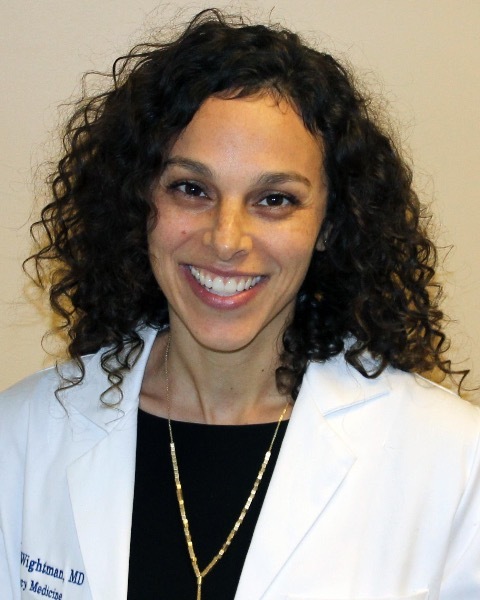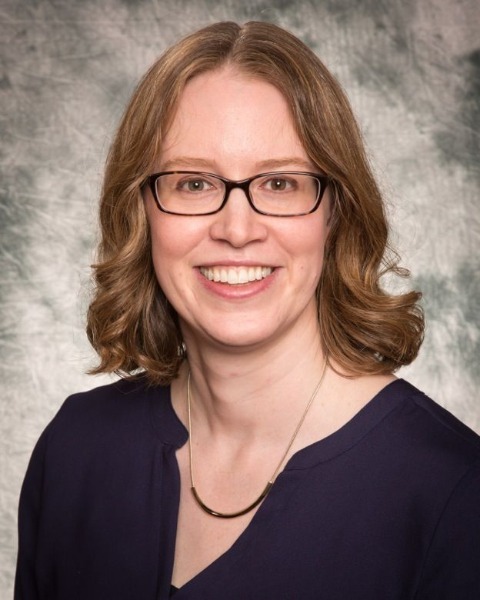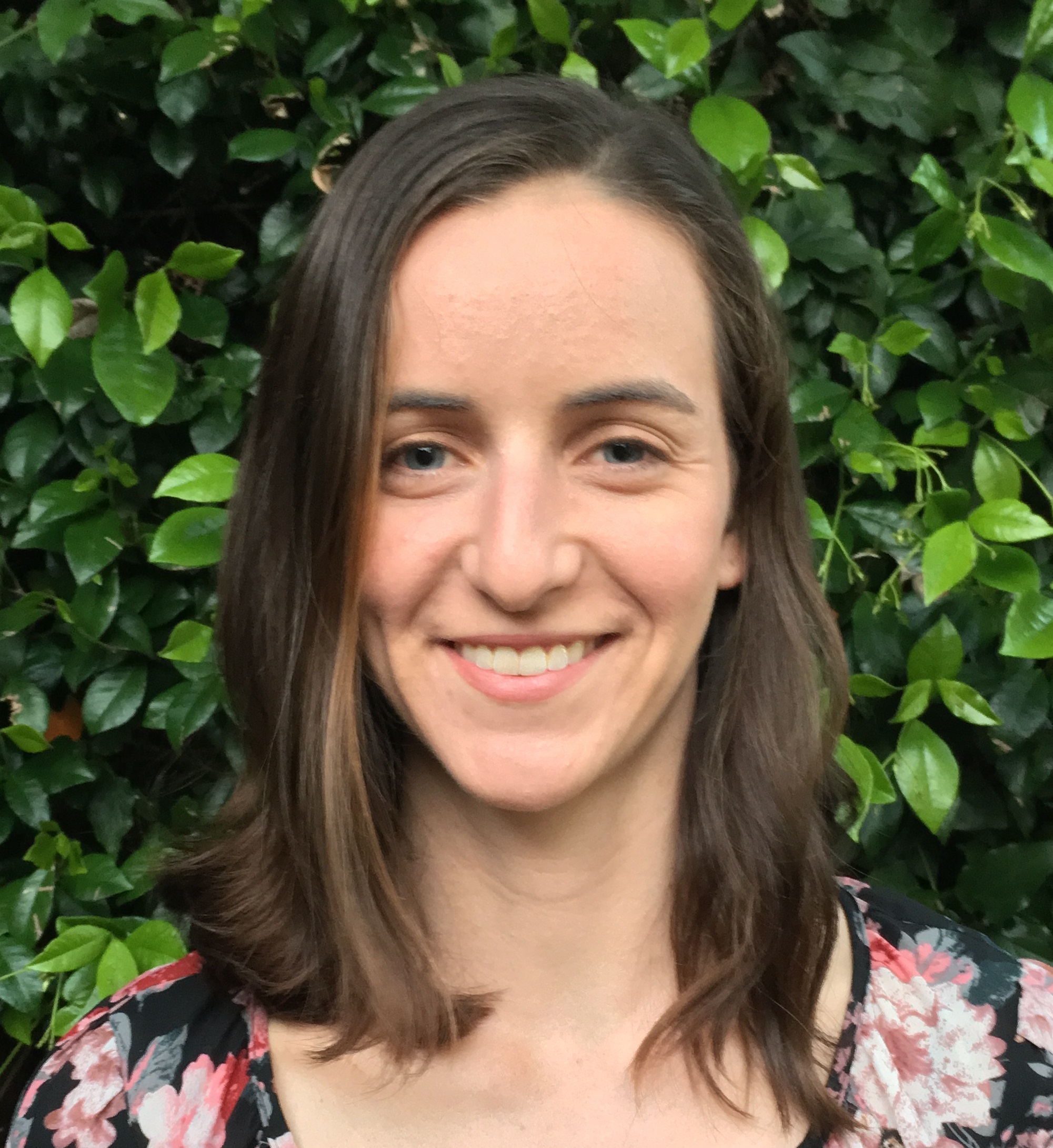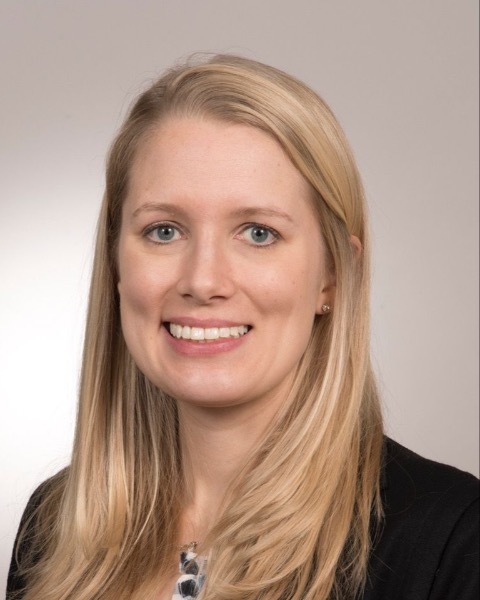
Lessons Learned from Buprenorphine Telehealth During COVID-19: A Guide for Providers
-
Register
- Non-Member - $39
- Regular Member - $29
- Retired - $29
- Early Career Physician - $29
- Resident - $19
- Student - $19
- Associate - $19
- ASAM Staff - Free!
- International Member - $29
- Emeritus Member - $29
- Provisional Member - $29
- Fellow Member - $29
- Honorary Member - $29
- CRT Member - $29

Lessons Learned from Buprenorphine Telehealth During COVID-19: A Guide for Providers
Recorded: Thursday, April 22, 2021 - Saturday, April 24, 2021
On-Demand Session
Overview
This 1.5-hour on-demand session from ASAM Virtual 2021 addresses the telehealth regulations for buprenorphine treatment, the evidence for telehealth delivered MOUD treatment, and present a range of clinical buprenorphine telehealth practice models created across the US during the COVID-19 pandemic.
Regulatory, logistical and clinical questions about implementing delivery of MOUD via telehealth abound in our rapidly changing healthcare environment. This session will review telehealth regulations for buprenorphine treatment, the evidence for telehealth delivered MOUD treatment, and present a range of clinical buprenorphine telehealth practice models created across the US during the COVID-19 pandemic. The majority of the discussion will be devoted to clinical considerations in using and implementing telehealth to deliver buprenorphine treatment while sharing clinical successes and pitfalls learned from real-world experience.
The target audience for this intermediate level session includes physicians, nurse practitioners, physician assistants, other clinicians, researchers, residents, fellows, students, and counselors.
This session addresses the following ACGME Competencies: Patient Care, Practice-Based Improvement.
Learning Objectives
Upon completion, learners will be able to:
- Understand telehealth MOUD regulations for buprenorphine treatment both before and during the COVID-19 public health emergency and describe current proposed federal legislation to advance telehealth MOUD and expand access to care
- Review existing evidence for telehealth delivered MOUD
- Discuss the range of MOUD clinical telehealth practice models borne out of COVID-19, benefits and limitations of each model, and any clinical concerns that have arisen
Fees
| Rate Description | Rate |
| ASAM Member | $29 |
| Non-Member | $39 |
| Associate Member | $19 |
| Resident Member* | $19 |
| Student Member* | $19 |
*Residents, Fellows-in-training, Interns, and Students must join ASAM to receive a discounted registration rate. Click here to become an ASAM member. National and Chapter membership dues apply. There is no charge for Students to become a Member, but verification of student status is required.
Membership Question? Call ASAM at 1.301.656.3920, email us, or view the ASAM website for more information.
Refunds & Cancellations
All ASAM e-Learning Center refund requests must be made in writing to education@asam.org within 90 days of purchase. Those requesting refunds for courses that are in progress will receive partial refunds or e-Learning Center credit. Automatic full refunds will be made for any course with a live-course component that has been cancelled.
Registration Deadline: 04/30/2024
Course Instructions
- Click the "Contents" tab and select "View Introductory Video". After viewing the entire video, return to the Contents tab.
- Select "View On-Demand Recording". After viewing the entire video, return to the Contents tab.
- Click "Complete Post Test" to answer quiz questions. You will have 10 attempts and must get at least 4 out of 5 questions correct. After completing the quiz, return to the Contents tab.
- Click "Complete Evaluation" to answer evaluation questions. Scroll down on all questions, there are answers that expand past the size of the window.
- Click the button “Claim Credits” in the box titled “Claim Credits & Certificate." Choose the type of credit and click submit. Click the button “View/Print Certificate” to save or print your certificate. If you ever lose your certificate, you can come back to the ASAM e-Learning Center and view it on your transcript (found in the Dashboard).
Need Assistance?
If you have are experiencing any log in issues, cannot access a course, need assistance claiming credit, or have other questions or concerns, please e-mail Education@asam.org for assistance.
For learners who may have difficulty typing, moving a mouse or reading, Essential Accessibility is an application available for use to assist.

Rachel S. Wightman
MD
Rachel S. Wightman, MD is an Assistant Professor in the Department of Emergency Medicine at The Warren Alpert Medical School of Brown University. She is the Director of Toxicology Education at Brown Emergency Medicine and serves as faculty of the Addiction Medicine Fellowship at Brown. She completed medical toxicology fellowship and emergency medicine residency at New York University School of Medicine/ Bellevue Hospital Center. She is board certified in medical toxicology and emergency medicine.
Dr. Wightman’s primary clinical expertise is in the evaluation and management of drug toxicity syndromes in complex medical patients and enhancing medication safety for high-risk drugs. Her scholarly interests focus on evaluation and tracking of emerging drug trends and medications for treatment of opioid use disorder.

Michael J. Lynch
MD
Dr. Michael Lynch is an assistant professor of Emergency Medicine and Pediatrics at the University of Pittsburgh. He is board certified in Emergency Medicine, Medical Toxicology, and Addiction Medicine. Dr. Lynch graduated from the University of Notre Dame and University of Pittsburgh School of Medicine before completing his residency in Emergency Medicine and fellowship in Medical Toxicology at the University of Pittsburgh. Dr. Lynch works in the Emergency Departments at UPMC Presbyterian and Mercy Hospitals. The Toxicology service at UPMC is one of the busiest in the country, seeing patients at 5 Pittsburgh hospitals as well as providing inpatient addiction and telemedicine treatment. Dr. Lynch is the Medical Director of the Pittsburgh Poison Center and of Substance Use Disorder Services at UPMC Health Plan while continuing to serve on the Boards of Directors for the PA College of Emergency Physicians and the American Association of Poison Control Centers. He has implemented naloxone distribution, emergency department buprenorphine induction, as well as inpatient buprenorphine and methadone initiation and maintenance pathways within the UPMC system. Dr. Lynch began the inpatient addiction medicine consultation service at UPMC with a multidisciplinary team, a poison center based withdrawal and addiction treatment support hotline, and, most recently, implemented a telemedicine addiction bridge clinic serving the entire Commonwealth of Pennsylvania. He served on the Pain Management Best Practices Inter-Agency Task Force at the Department of Health and Human Services.

Erin A. Zerbo
MD, FASAM
Erin Zerbo, MD, received her B.S. in Brain and Cognitive Sciences from the Massachusetts Institute of Technology in 2003, and her M.D. from New York University School of Medicine in 2007. She remained at NYU for a general psychiatry residency and a one-year addiction psychiatry fellowship, graduating in 2012. Since 2014, she has been an Assistant Professor in the Department of Psychiatry at Rutgers New Jersey Medical School and the Associate Director of Medical Student Education in Psychiatry. In addition to managing a large buprenorphine practice dedicated to Newark residents, she is also the director of the Northern New Jersey Center of Excellence in Medication-Assisted Treatment, a new statewide opioid training and education initiative. Dr. Zerbo serves as the co-Chair of the Council on Education of the New Jersey Psychiatric Association, and she has published and lectured extensively in the field of addiction. Her primary interest is the treatment of substance use disorders in underserved and disadvantaged populations. She is a co-editor of the book "Pocket Guide to Addiction Assessment and Treatment" (APA, 2106), and the lead editor of "Becoming Mindful: Integrating Mindfulness into Your Psychiatric Practice" (APA, 2017).
Disclosures - None

Hannah Snyder
MD
Hannah Snyder, MD practices primary care and addiction medicine at Zuckerberg San Francisco General Hospital (ZSFG) and is a Clinical Assistant Professor in the Department of Family and Community Medicine at the University of California San Francisco. She is a co-principal investigator of the statewide California Bridge Project. Through this program, she supports acute care hospitals in offering low barrier buprenorphine starts and linkage to ongoing treatment.
She completed Medical School at the University of Chicago, residency in Family and Community Medicine at the University of California San Francisco (UCSF), and a fellowship in Primary Care Addiction Medicine at UCSF. Her clinical work includes addiction consultation in clinic and in the hospital, primary care, and hospital medicine. At ZSFG, Dr. Snyder is the Director of the Bridge Clinic, a low-barrier addiction treatment program focused on patients transitioning from acute care to the community.
No relevant financial disclosures.

Jessica L. Taylor
MD
Jessica L. Taylor, MD is an Assistant Professor of Medicine in General Internal Medicine at the Boston University School of Medicine and Boston Medical Center. Her clinical work focuses on the care of patients with substance use disorders, HIV, and viral hepatitis. Her research interests include HIV prevention among people who inject drugs, implementation strategies for HIV pre-exposure prophylaxis (PrEP), other infectious complications of injection drug use, and overdose prevention.
Dr. Taylor is the Medical Director of Faster Paths to Treatment, Boston Medical Center's innovative, low-barrier substance use disorder bridge clinic, and the Director of HIV Prevention Services at Boston Medical Center. Her other educational roles include co-directing the HIV Pathway for internal medicine residents and serving as core faculty in BUSM's addiction medicine fellowship program.
CME, CE, CEU and Other Credit Types

ACCME Accreditation Statement
The American Society of Addiction Medicine is accredited by the Accreditation Council for Continuing Medical Education (ACCME) to provide continuing medical education for physicians.
AMA Credit Designation Statement
The American Society of Addiction Medicine designates this enduring material for a maximum of 1.5 AMA PRA Category 1 Credits™. Physicians should claim only the credit commensurate with the extent of their participation in the activity.
American Academy of Physician Assistants
This activity has been reviewed by the AAPA Review Panel and is compliant with AAPA CME Criteria. This activity is designated for 1.5 AAPA Category 1 CME credits. Approval is valid from 5/26/2021 to 5/26/2022. PAs should only claim credit commensurate with the extent of their participation. AAPA reference number: CME-202755.
NAADAC, the Association for Addiction Professionals
This activity has been approved by the American Society of Addiction Medicine, as a NAADAC Approved Education Provider, for educational credits. NAADAC Provider #295, ASAM is responsible for all aspects of the programming.
California Association for Drug/Alcohol Educators (CAADE)
This educational program is approved by CAADE: #CP40 999 1222.
California Association of DUI Treatment Centers (CADTP)
This educational program is approved by CADTP: #205.
California Consortium of Addiction Programs and Professionals (CCAPP)
This educational program is approved by CCAPP: #OS-20-330-1222.
Continuing Education Credits (CEUs)
Non-physician participants will receive a certificate of attendance upon completion of the activity and an online evaluation confirming their participation. Participants should submit his/her certificate of attendance to their professional organization/institute.
Maintenance of Certification (MOC) or Continuing Certification Programs (CCP)
American Board of Medical Specialties (ABMS)
Through the American Board of Medical Specialties (“ABMS”) ongoing commitment to increase access to practice relevant Continuing Certification Activities through the ABMS Continuing Certification Directory, The ASAM Virtual.2021 has met the requirements as a MOC Part II CME Activity (apply toward general CME requirement) for the following ABMS Member Boards: Allergy and Immunology, Anesthesiology, Colon and Rectal Surgery, Family Medicine, Medical Genetics and Genomics, Nuclear Medicine, Physical Medicine and Rehabilitation, Plastic Surgery, Preventive Medicine, Psychiatry and Neurology, Radiology, Thoracic Surgery, Urology
American Board of Preventive Medicine (ABPM)
The American Board of Preventive Medicine (ABPM) has approved this activity for a maximum of 1.5 credit towards ABPM MOC Part II requirements.
American Board of Anesthesiology (ABA)
This activity contributes to the CME component of the American Board of Anesthesiology’s redesigned Maintenance of Certification in Anesthesiology TM (MOCA®) program, known as MOCA 2.0®.
American Board of Pediatrics (ABP)
Successful completion of this CME activity, which includes participation in the activity, with individual assessments of the participant and feedback to the participant, enables the participant to earn a maximum of 1.5 MOC point in the American Board of Pediatrics’ (ABP) Maintenance of Certification (MOC) program. It is the CME activity provider’s responsibility to submit participant completion information to ACCME for the purpose of granting ABP MOC credit.
American Board of Internal Medicine (ABIM)
Successful completion of this CME activity, which includes participation in the evaluation component, enables the participant to earn up to 1.5 Medical Knowledge MOC point in the American Board of Internal Medicine’s (ABIM) Maintenance of Certification (MOC) program. Participants will earn MOC points equivalent to the amount of CME credits claimed for the activity. It is the CME activity provider’s responsibility to submit participant completion information to ACCME for the purpose of granting ABIM MOC credits.
American Board of Surgery (ABS)
Successful completion of this CME activity, which includes participation in the evaluation component, enables the learner to earn credit toward the CME and/or Self-Assessment requirements of the American Board of Surgery’s Continuous Certification program. It is the CME activity provider's responsibility to submit learner completion information to ACCME for the purpose of granting ABS credit.
American Board of Psychiatry and Neurology (ABPN)
Successful completion of this CME activity can be used to satisfy the American Board of Psychiatry and Neurology’s (ABPN) CME requirement for Maintenance of Certification program.
American Board of Addiction Medicine (ABAM)
Successful completion of this activity can be used to satisfy the American Board of Addiction Medicine (ABAM) Tmoc credit requirements.
Royal College of Physicians and Surgeons of Canada (RCPSC)
Royal College Fellows can use participation in Accredited Continuing Medical Education to earn Section 3 Credits.
CME Committee, Program Planning Committee, and Faculty Disclosure Information
In accordance with disclosure policies of ASAM and the ACCME, the effort is made to ensure balance, independence, objectivity, and scientific rigor in all CME activities. These policies include mitigating all possible relevant financial relationships with ineligible companies for the Planning Committees, CME Committee, MEC, and Faculty. All activity Planning Committee members and Faculty have disclosed relevant financial relationship information. The ASAM CME Committee has reviewed these disclosures and determined that the relationships are not inappropriate in the context of their respective presentations and are not inconsistent with the educational goals and integrity of the activity.

